Plastic products play a pivotal role in global trade due to their versatility, durability, and cost-effectiveness. From packaging materials to automotive components, electronics, and everyday consumer goods, plastics are integral to numerous industries. The global demand for plastic products continues to grow, driven by technological advancements and the increasing needs of various sectors.
Proper declaration of plastic products during import and export is crucial to ensuring smooth customs clearance and compliance with regulatory requirements. Inaccurate or incomplete declarations can lead to delays, penalties, and even the seizure of goods. For businesses engaging in international trade, understanding and adhering to the declaration processes and regulations in China is essential for minimizing risks and avoiding financial losses. By ensuring accurate and complete documentation, businesses can facilitate efficient logistics operations and maintain positive relationships with customs authorities.
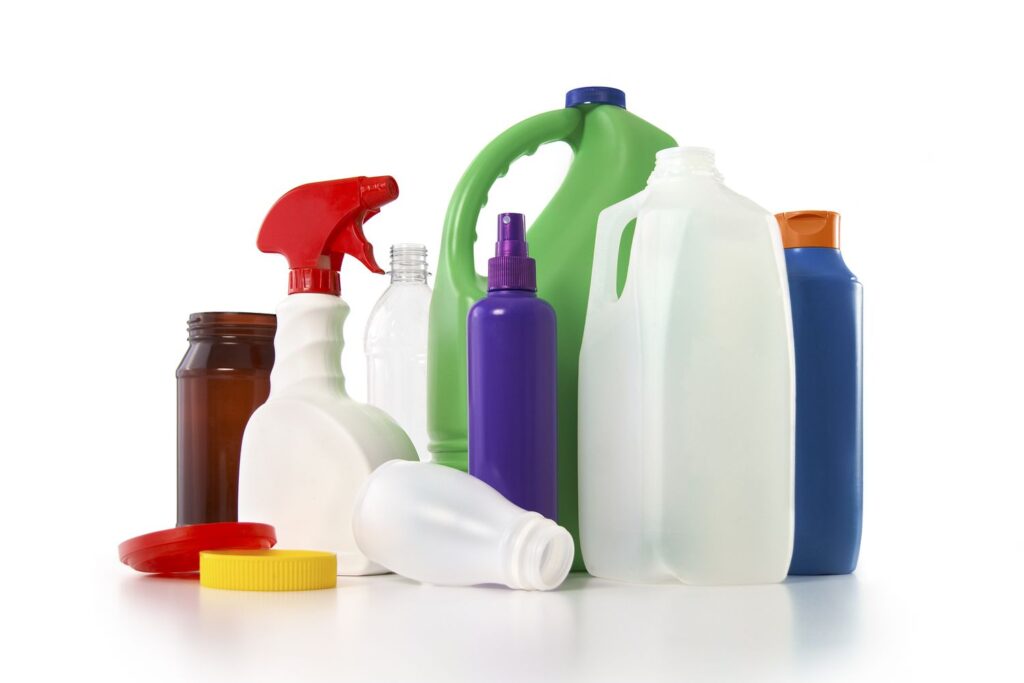
1. Regulatory Framework
Customs Regulations
China’s customs regulations for plastic products are stringent and require detailed documentation to ensure compliance. Key regulatory requirements include accurate classification of goods, proper labeling, and adherence to import tariffs and duties. The Harmonized System (HS) Code is used to classify plastic products, and businesses must ensure that their HS codes are correctly assigned to avoid misclassification and associated penalties. Additionally, importers must be aware of any specific restrictions or quotas that may apply to certain types of plastic products.
Environmental Regulations
Environmental compliance is a critical aspect of trading plastic products in China. The country has implemented several regulations aimed at reducing plastic waste and promoting sustainability. These include restrictions on single-use plastics, mandatory recycling requirements, and standards for the environmental safety of plastic materials. Businesses must ensure that their products meet these environmental standards to avoid non-compliance issues. The Chinese government continues to tighten regulations to mitigate the environmental impact of plastics, and staying updated with these changes is essential for importers and exporters.
2. Documentation Required
Invoice
The commercial invoice is a critical document in the import and export process, providing detailed information about the transaction. It must include the following details:
- Seller and buyer’s names and addresses
- Detailed description of the plastic products
- Quantity and unit price
- Total value of the shipment
- Terms of sale (Incoterms)
- Payment method
Accurate and complete information on the invoice is necessary to ensure proper customs valuation and avoid delays.
Packing List
The packing list provides information about the contents of the shipment and their packaging. It is crucial for customs officers to verify the shipment’s contents and for the consignee to check the received goods. The packing list should include:
- Detailed description of each item
- Quantity and weight of each item
- Dimensions and weight of each package
- Marks and numbers on packages
- Any special handling instructions
Providing a clear and accurate packing list helps facilitate smooth customs clearance and efficient handling of the shipment.
Bill of Lading
The Bill of Lading is a legal document issued by the carrier to acknowledge receipt of the cargo for shipment. It serves as a contract of carriage and a receipt for the goods. The Bill of Lading should include:
- Names and addresses of the shipper and consignee
- Description of the plastic products
- Quantity and weight of the shipment
- Port of loading and port of discharge
- Terms and conditions of carriage
Having a properly completed Bill of Lading is essential for the release of goods and serves as proof of ownership during transit.
Certificate of Origin
The Certificate of Origin certifies the country in which the plastic products were manufactured. It is often required to determine the applicable tariffs and to verify that the products meet the criteria for preferential trade agreements. The certificate should include:
- Name and address of the exporter
- Description of the goods
- Country of origin
- Date of issue
- Authorized signature and stamp
This document can help importers benefit from reduced tariffs under free trade agreements.
Import/Export License
An import/export license is required for businesses to legally engage in international trade in China. The licensing process involves registering with the relevant government authorities and obtaining approval to import or export specific types of goods. The license ensures that the business complies with national trade policies and regulations. It is essential to understand the licensing requirements and obtain the necessary licenses before initiating trade activities.
Other Certificates
Depending on the nature of the plastic products, additional certificates may be required, such as quality certificates, customs clearance certificates, and environmental compliance certificates. These documents verify that the products meet specific standards and regulatory requirements. Ensuring all necessary certificates are in order helps prevent delays and ensures the smooth processing of the shipment through customs.
By adhering to these documentation requirements and understanding the regulatory framework, businesses can navigate the complexities of importing and exporting plastic products in China effectively. Partnering with a professional freight forwarder like Dantful International Logistics can further streamline the process and ensure compliance with all necessary regulations.
Read More:
- Shipping From China to the United States
- Shipping From China TO CANADA
- Shipping From China To Netherlands
- Shipping From China To UNITED KINGDOM
- Shipping From China To ALGERIA
- Shipping from China to UAE
- Shipping from China to Saudi Arabia
3. Step-by-Step Declaration Process
Preparation: Gathering and Preparing All Necessary Documents
The initial step in the declaration process involves compiling all the necessary documents to ensure compliance with Chinese customs regulations. These documents typically include the commercial invoice, packing list, bill of lading, certificate of origin, and any required import/export licenses or additional certificates. It is imperative to ensure all documents are complete, accurate, and properly formatted to avoid delays or complications during customs clearance. Additionally, it is beneficial to have digital copies readily available for electronic submissions and record-keeping.
Submission: How and Where to Submit Your Declaration
Once all documents are prepared, the next step is to submit them to the appropriate customs authority. In China, this is usually done via the Chinese Single Window, an integrated online platform that facilitates international trade procedures. Businesses must log into the platform and upload the required documents, providing detailed information about the shipment. It is crucial to double-check all entries for accuracy to prevent any discrepancies that could trigger customs scrutiny.
Verification: Customs Verification and Possible Inspection
After submission, customs authorities will review the submitted documents to verify the accuracy and compliance of the shipment. This verification process may involve physical inspections, especially if the shipment contains high-risk or restricted items. Customs officers will examine the shipment to ensure it matches the declared information and adheres to all regulatory requirements. Being prepared for potential inspections and ensuring all documents accurately reflect the shipment can expedite the verification process.
Payment of Duties and Taxes: Calculating and Paying the Duties and Taxes
Following verification, the next step is the calculation and payment of any applicable duties and taxes. These charges are based on the shipment’s value and classification under the Harmonized System (HS) Code. Businesses can use the Chinese Single Window platform to calculate the duties and taxes owed and make the required payments. Prompt payment is essential to avoid delays in the release of goods. Keeping records of all transactions and payments is also advised for future reference and audits.
Release of Goods: Final Steps for Goods Release and Receipt
Once all duties and taxes have been paid and any inspections completed, customs will issue a release order. This order allows the goods to be transported from the customs area to their final destination. It is crucial to coordinate with the logistics provider to ensure timely pickup and delivery of the goods. Properly documenting the release and receipt process helps maintain an accurate record of the shipment and ensures accountability.
4. Special Considerations
DDP (Delivered Duty Paid)
DDP (Delivered Duty Paid) is an Incoterm that indicates the seller is responsible for all costs and risks associated with transporting goods to the buyer’s destination, including duties, taxes, and customs clearance. Using DDP for shipping plastic products can provide several advantages:
- Simplified Logistics: The seller manages all logistics, reducing the buyer’s responsibilities.
- Cost Predictability: The buyer knows the total cost upfront, with no unexpected fees.
- Customer Satisfaction: Buyers may prefer DDP terms as it simplifies their procurement process.
To leverage DDP effectively, it is essential to partner with a reliable logistics provider like Dantful International Logistics, which offers comprehensive services to handle all aspects of DDP shipments.
Handling Restricted or Prohibited Plastics
Specific regulations apply to restricted or prohibited plastic products, and it is crucial to be aware of these when trading such items. Restricted plastics may require special permits or certifications, while prohibited plastics cannot be imported or exported under any circumstances. Ensure compliance by:
- Researching Regulations: Stay informed about current restrictions and prohibitions.
- Obtaining Necessary Permits: Secure any required permits or certifications before shipping.
- Consulting Experts: Work with customs brokers or legal advisors to navigate complex regulations.
5. Common Challenges and Solutions
Documentation Errors
Common errors in documentation, such as incorrect HS codes, missing signatures, or inaccurate item descriptions, can lead to delays and penalties. To avoid these errors:
- Double-Check Documents: Verify all details before submission.
- Use Templates: Standardize documents using templates to minimize errors.
- Seek Professional Help: Engage with experienced freight forwarders or customs brokers.
Delays in Customs Clearance
Customs clearance delays can disrupt the supply chain and increase costs. Tips for avoiding and dealing with delays include:
- Prepare Early: Gather and review all documents well in advance.
- Track Shipments: Use tracking tools to monitor the progress of your shipment.
- Communicate Proactively: Maintain open communication with customs officials and your logistics provider.
Compliance Issues
Ensuring compliance with all regulations is essential to avoid fines and shipment holds. Steps to ensure compliance include:
- Stay Updated: Regularly review regulatory updates and changes.
- Conduct Audits: Periodically audit your processes and documentation.
- Train Staff: Ensure that all team members are knowledgeable about compliance requirements.
6. Choosing the Right Freight Forwarder
Benefits of Professional Assistance
A professional freight forwarder can simplify the import and export process by:
- Managing Documentation: Handling all necessary paperwork and ensuring accuracy.
- Navigating Regulations: Providing expertise in customs regulations and compliance.
- Coordinating Logistics: Arranging efficient and cost-effective transportation.
Why Choose Dantful International Logistics
Dantful International Logistics offers a range of services designed to make international shipping seamless and cost-effective:
- Comprehensive Services: From customs clearance to warehouse services, Dantful covers all aspects of logistics.
- Expertise and Experience: With years of experience in global trade, Dantful provides reliable and professional service.
- Cost-Effective Solutions: Dantful offers competitive pricing without compromising on quality.
By choosing Dantful International Logistics, businesses can ensure their plastic products are imported and exported efficiently, compliant with all regulations, and delivered on time.
Dantful International Logistics Services:
- Dantful Ocean Freight Services
- Air Freight From China
- Amazon FBA Freight Forwarding
- WAREHOUSE Services
- One-Stop Customs Clearance Solution
- Cargo Insurance Services in China
- DDP Shipping Services By Dantful Logistics
- Out of Gauge Cargo Transportation Shipping Services
FAQ
Q1: What is the Chinese Single Window?
The Chinese Single Window is an integrated online platform that facilitates international trade procedures, allowing businesses to submit required documents and information to customs authorities electronically.
Q2: How can I ensure my plastic products comply with Chinese environmental regulations?
To ensure compliance, stay informed about current regulations, secure any necessary permits or certifications, and consult with experts to navigate complex requirements.
Q3: What are some common documentation errors to avoid?
Common errors include incorrect HS codes, missing signatures, and inaccurate item descriptions. Double-check all documents and use templates to minimize errors.
Q4: How can DDP terms benefit my business?
DDP terms simplify logistics by transferring all costs and risks to the seller, providing cost predictability and increasing customer satisfaction.
Q5: Why should I choose Dantful International Logistics?
Dantful International Logistics offers comprehensive services, expertise in customs regulations, and cost-effective solutions for efficient international shipping.
References
- Grand View Research. (2020). “Plastic Product Market Size, Share & Trends Analysis Report By Product (Film & Sheet, Pipe & Fitting), By Application (Packaging, Construction, Automotive), By Region, And Segment Forecasts, 2021 – 2028”. Retrieved from Grand View Research.
- Chinese Single Window. Official platform for international trade facilitation in China. Retrieved from Chinese Single Window.

Young Chiu is a seasoned logistics expert with over 15 years of experience in international freight forwarding and supply chain management. As CEO of Dantful International Logistics, Young is dedicated to providing valuable insights and practical advice to businesses navigating the complexities of global shipping.



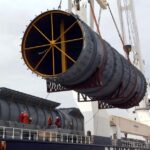
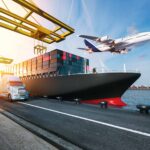

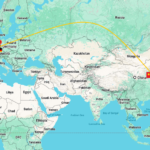



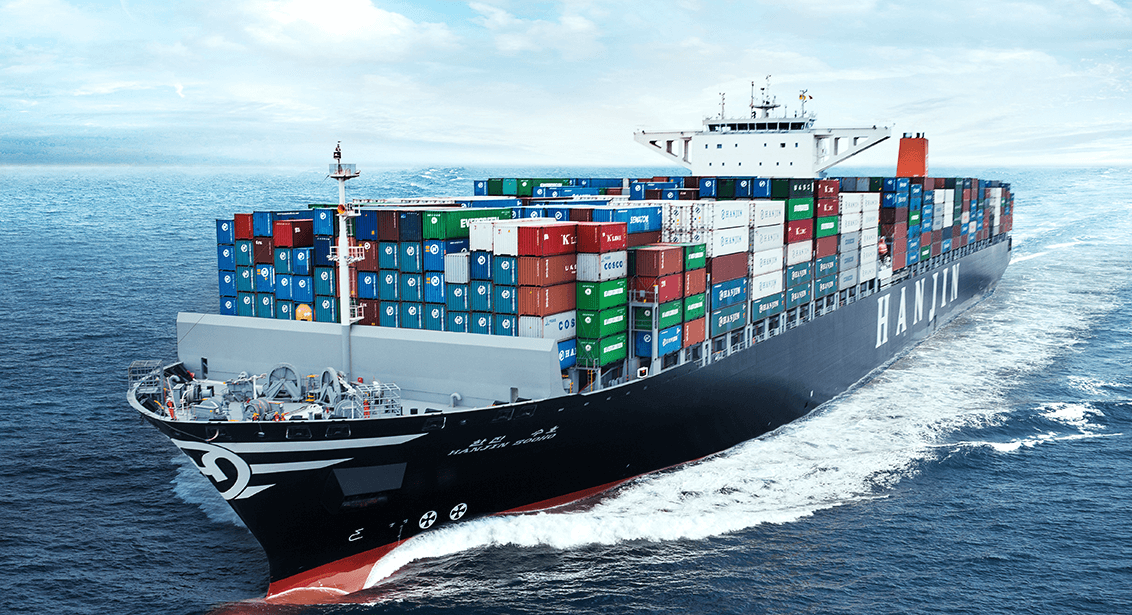
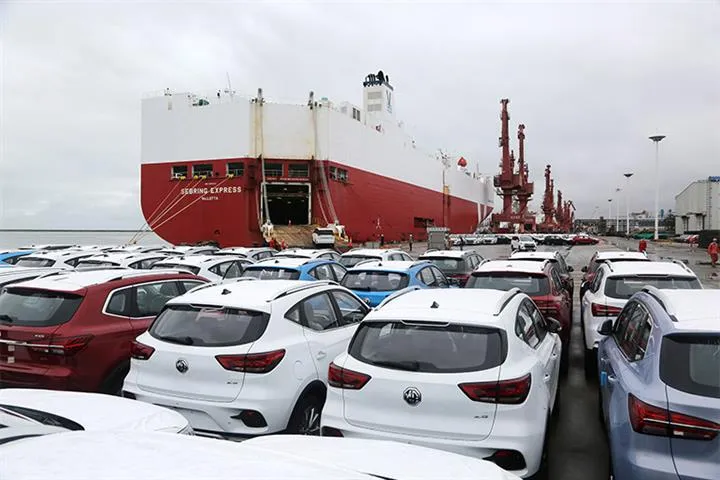

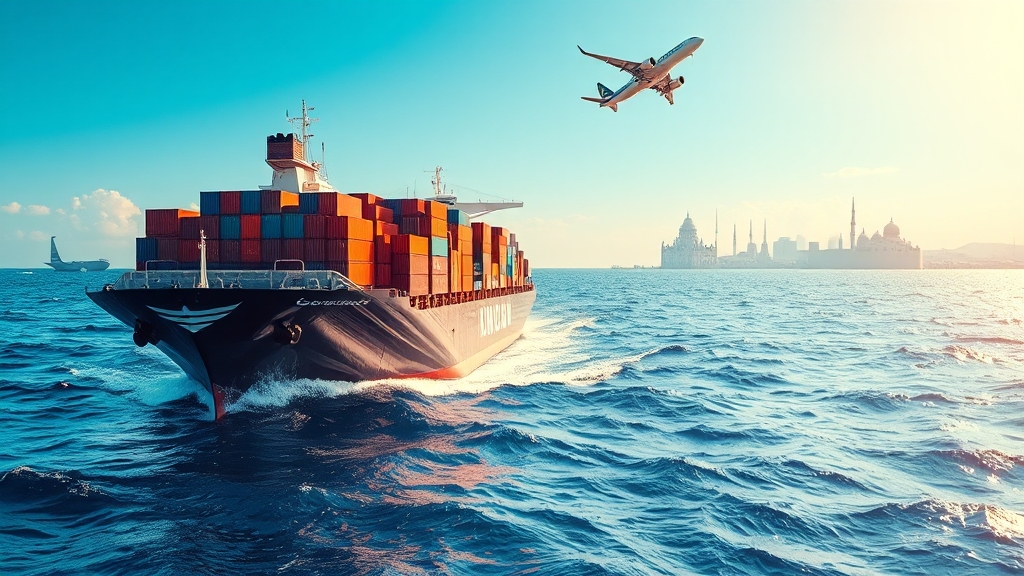
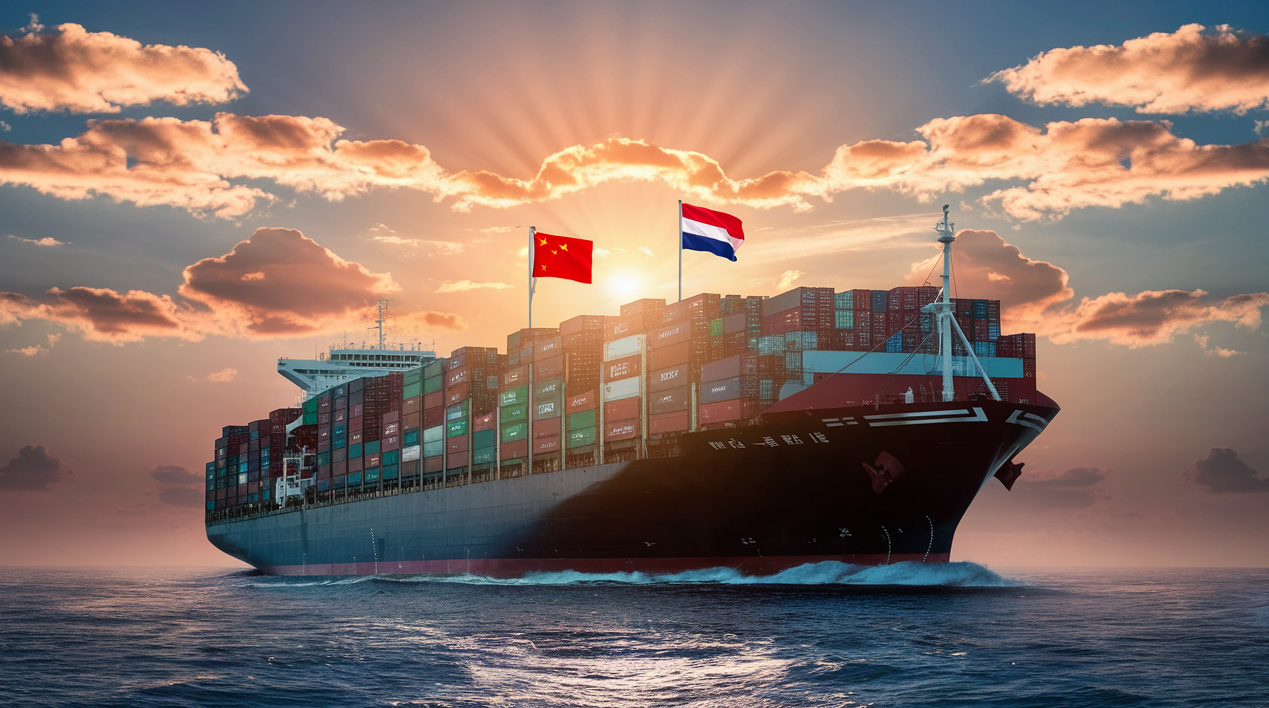





 Afrikaans
Afrikaans Shqip
Shqip አማርኛ
አማርኛ العربية
العربية Հայերեն
Հայերեն Azərbaycan dili
Azərbaycan dili Euskara
Euskara Беларуская мова
Беларуская мова বাংলা
বাংলা Bosanski
Bosanski Български
Български Català
Català Cebuano
Cebuano Chichewa
Chichewa 简体中文
简体中文 繁體中文
繁體中文 Corsu
Corsu Hrvatski
Hrvatski Čeština
Čeština Dansk
Dansk Nederlands
Nederlands English
English Esperanto
Esperanto Eesti
Eesti Filipino
Filipino Suomi
Suomi Français
Français Galego
Galego ქართული
ქართული Deutsch
Deutsch Ελληνικά
Ελληνικά Kreyol ayisyen
Kreyol ayisyen Harshen Hausa
Harshen Hausa Ōlelo Hawaiʻi
Ōlelo Hawaiʻi עִבְרִית
עִבְרִית हिन्दी
हिन्दी Hmong
Hmong Magyar
Magyar Íslenska
Íslenska Igbo
Igbo Bahasa Indonesia
Bahasa Indonesia Gaeilge
Gaeilge Italiano
Italiano 日本語
日本語 Basa Jawa
Basa Jawa ಕನ್ನಡ
ಕನ್ನಡ Қазақ тілі
Қазақ тілі ភាសាខ្មែរ
ភាសាខ្មែរ 한국어
한국어 كوردی
كوردی Кыргызча
Кыргызча ພາສາລາວ
ພາສາລາວ Latin
Latin Latviešu valoda
Latviešu valoda Lietuvių kalba
Lietuvių kalba Lëtzebuergesch
Lëtzebuergesch Македонски јазик
Македонски јазик Malagasy
Malagasy Bahasa Melayu
Bahasa Melayu മലയാളം
മലയാളം Maltese
Maltese Te Reo Māori
Te Reo Māori मराठी
मराठी Монгол
Монгол ဗမာစာ
ဗမာစာ नेपाली
नेपाली Norsk bokmål
Norsk bokmål پښتو
پښتو فارسی
فارسی Polski
Polski Português
Português ਪੰਜਾਬੀ
ਪੰਜਾਬੀ Română
Română Русский
Русский Samoan
Samoan Gàidhlig
Gàidhlig Српски језик
Српски језик Sesotho
Sesotho Shona
Shona سنڌي
سنڌي සිංහල
සිංහල Slovenčina
Slovenčina Slovenščina
Slovenščina Afsoomaali
Afsoomaali Español
Español Basa Sunda
Basa Sunda Kiswahili
Kiswahili Svenska
Svenska Тоҷикӣ
Тоҷикӣ தமிழ்
தமிழ் తెలుగు
తెలుగు ไทย
ไทย Türkçe
Türkçe Українська
Українська اردو
اردو O‘zbekcha
O‘zbekcha Tiếng Việt
Tiếng Việt Cymraeg
Cymraeg יידיש
יידיש Yorùbá
Yorùbá Zulu
Zulu